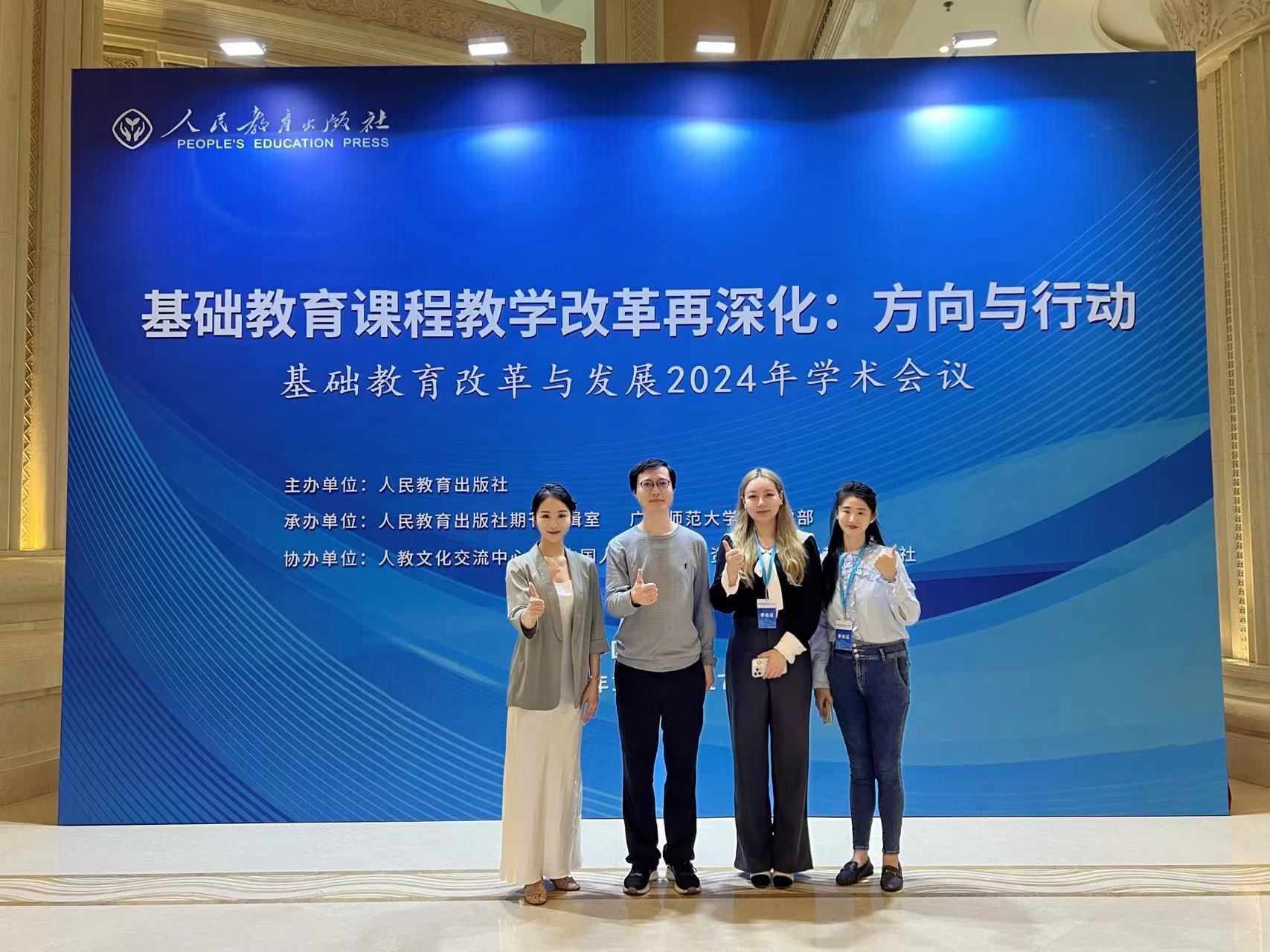The "2024 Academic Conference on Basic Education Reform and Development," hosted by the People's Education Press, organized by the People's Education Journal Editorial Office and the Faculty of Education of Guangxi Normal University, and co-organized by the People's Education Cultural Exchange Center and the Basic Education Journal Department of the Book and Newspaper Information Center of Renmin University of China, was grandly held from November 15 to 17, 2024, in Guilin, Guangxi. The theme of this conference was "Further Deepening the Reform of Basic Education Curriculum and Teaching: Directions and Actions," aiming to implement the Ministry of Education's "Action Plan for Deepening Basic Education Curriculum and Teaching Reform," promote the implementation of the new curriculum plan and the spirit of the new curriculum standards, and strengthen the construction of the curriculum, teaching materials, and teaching systems.
During the conference, Assistant Professor Dai Yi from the School of Education, along with doctoral students Zhang Ming, Liu Xiaoyu, Zhang Xiang, Ni Chen, and master's student Xiao Jiaying, shared their research findings, providing attendees with a rich academic exchange.
Reflections from Participating Students
Zhang Ming, Doctoral Student in Education
Principal Dou Guimei's report, "Thematic Teaching: Task Design and Implementation Based on Textbook Units," was highly practical and instructive. She emphasized that designing thematic tasks based on textbook units can effectively stimulate students' interest and initiative in learning. In Chinese language teaching, integrating listening, speaking, reading, and writing tasks around unit themes allows students to deeply understand texts and enhance their comprehensive literacy while completing tasks. It is even possible to design cross-disciplinary tasks to cultivate students' ability to integrate knowledge and think innovatively, making teaching more relevant to students' lives and societal needs. Through this learning experience, I have clarified the direction for teaching improvement. In the future, I will start with overall curriculum planning, define major goals and frameworks, and meticulously design tasks and activities for each lesson, focusing on the integration and connection of teaching content. By linking knowledge through themes, I aim to improve teaching efficiency and quality. Additionally, I will actively explore cross-disciplinary teaching, collaborate with other teachers, and design diverse task scenarios for students to promote their holistic development. Listening to the reports of educational experts has opened new horizons for me in education. I will absorb the essence of their ideas, continuously explore innovations, and strive forward on the path of education, contributing to student growth and the development of the educational cause.
Liu Xiaoyu, Doctoral Student in Education
At the conference, I had the privilege of listening to Professor Cui Yunhuo's report, "New Teaching: Using Curriculum Thinking to 'Grasp the Big and Unify the Small,'" and Principal Dou Guimei's "Thematic Teaching: Task Design and Implementation Based on Textbook Units," among other excellent presentations. I gained a lot and was deeply inspired. Professor Cui Yunhuo's proposal of "using curriculum thinking to 'grasp the big and unify the small'" brought a fresh perspective to teaching concepts, making me realize that teaching should not be confined to the transmission of single-lesson knowledge but should be planned from a macro curriculum perspective. For example, when designing teaching, we should first clarify the major goals and educational values of the curriculum, then refine the small goals and tasks for each lesson, ensuring the curriculum's coherence and systematicity. This approach avoids fragmented teaching and allows students to construct a complete knowledge system, laying the foundation for their lifelong learning.


